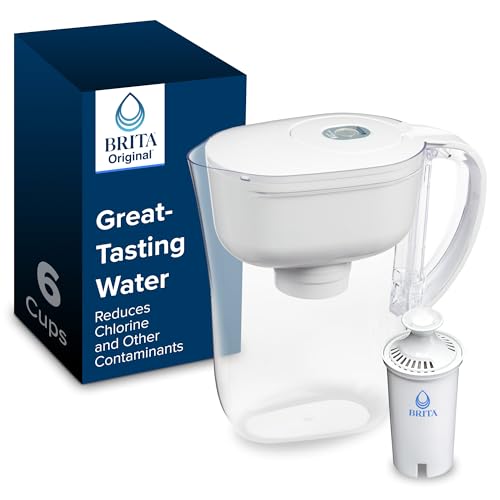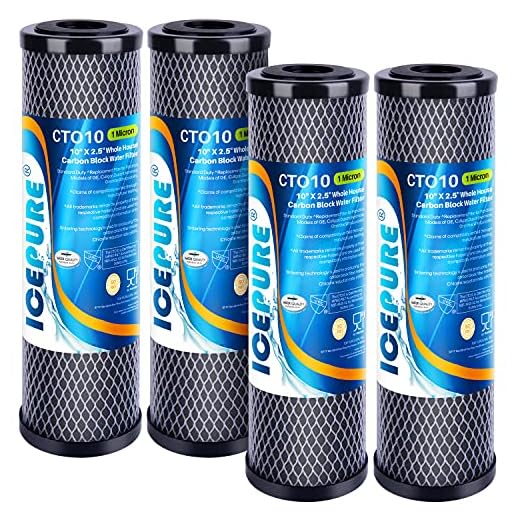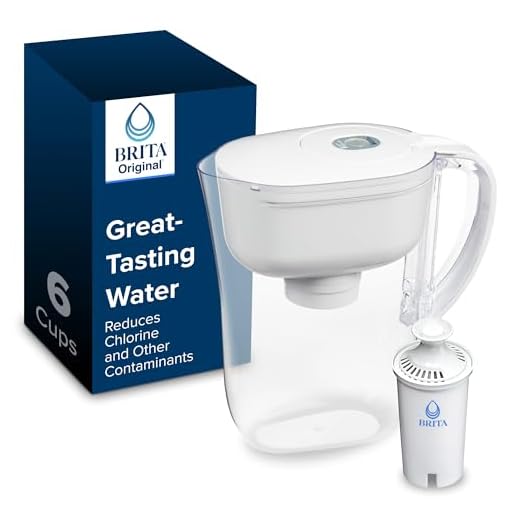




Choosing the Right Water Filter
Selecting an appropriate water filter requires careful consideration of various factors. First, assess the contaminants present in your water supply. Different filters target specific impurities, such as chlorine, lead, and bacteria. Testing your water can guide you in choosing a filter that effectively addresses these issues. Also, consider the filter’s capacity and the volume of water your household consumes. For larger families or those with higher water usage, a filter with a greater flow rate may be necessary.
Another important aspect involves the type of filtration system you prefer. Options range from pitcher filters to under-sink models and whole-house systems. Each type has its advantages and limitations in terms of installation, maintenance, and filter lifespan. Be mindful of the filter replacement schedule to ensure continual effectiveness. Reading reviews and seeking recommendations can also help narrow down the choices that best suit your needs.
Factors to Consider When Selecting a Filter
When selecting a water filter, it is essential to assess the specific contaminants present in your water supply. This might include impurities such as chlorine, lead, sediments, or bacteria. Understanding the quality of your water can guide you towards the appropriate filtration technology, whether that be activated carbon, reverse osmosis, or UV purifiers. Each method has its strengths in addressing particular issues, making it crucial to choose one that fits your needs.
In addition to contaminant removal capabilities, consider the filter’s capacity and flow rate. Different filters come with varying filtering speeds and volumes they can handle. A family might require a different system than a single individual in terms of these factors. Evaluating your daily water consumption and the size of your household will help ensure you select a filter that provides adequate supply without delay.
Maintenance of Water Filtration Systems
Regular maintenance is essential for ensuring that water filtration systems function effectively. Users should establish a routine check to replace filters according to manufacturer recommendations. Neglecting this task can lead to reduced performance and inadequate filtration. Cleaning pre-filters and sediment filters is equally important, as clogs can impede water flow and diminish the system’s efficiency.
Additionally, keeping the filtration system’s components free from debris can enhance its lifespan. Users should inspect hoses and connections for any signs of wear or leaks. Monitoring water quality can also indicate when maintenance is needed. Regular checks will help maintain optimal filtration and contribute to better water quality, ultimately supporting a healthier lifestyle.
Tips for Keeping Your Filter in Optimal Condition
Regularly checking and replacing filter cartridges is essential for maintaining the effectiveness of your water filtration system. Most manufacturers recommend specific replacement intervals based on water quality and usage levels. Ignoring these guidelines may result in decreased filtration efficiency and potentially harmful contaminants slipping through. Keeping a schedule or setting reminders can help ensure timely maintenance.
Cleaning the exterior and components of the filter is another important aspect of care. Dirt and grime can accumulate over time, impacting both the appearance and function of the system. A simple solution is to use a soft cloth and mild soap to wipe down surfaces regularly. This preventive measure not only enhances the longevity of the filter but also contributes to better tasting and healthier drinking water.
The Connection Between Water Quality and Health
Access to clean water is crucial for maintaining good health. Contaminants in drinking water can lead to a range of health issues, from gastrointestinal problems to more severe conditions such as neurological disorders. Regular consumption of contaminated water poses risks that can accumulate over time, impacting not only physical health but also overall quality of life.
Moreover, the importance of hydration cannot be overstated. Staying properly hydrated with clean water supports bodily functions such as digestion, circulation, and temperature regulation. It also plays a vital role in maintaining mental acuity and mood. Ensuring access to filtered water can dramatically improve the quality of hydration, thus positively influencing both physical and mental well-being.
How Clean Water Affects Overall Well-being
Access to clean water is essential for maintaining good health. Contaminated water can lead to a host of illnesses, ranging from minor gastrointestinal issues to severe conditions. Regular consumption of clean water supports hydration, which is vital for bodily functions, including digestion, circulation, and temperature regulation. Without adequate hydration, individuals may experience fatigue, headaches, and reduced cognitive performance.
Furthermore, the quality of water consumed can influence overall wellness beyond just physical health. Clean water contributes to improved skin health and can enhance mood and energy levels. Additionally, safe drinking water can reduce the risk of exposure to harmful chemicals and toxins. This not only helps prevent disease but also promotes an overall sense of well-being and vitality. Access to purified drinking water is a foundational element for a healthier lifestyle.
FAQS
How do water filters help reduce plastic waste?
Water filters help reduce plastic waste by providing an alternative to bottled water, which often comes in plastic containers. By using a filter, consumers can enjoy clean drinking water from their tap, decreasing the demand for single-use plastic bottles.
What types of water filters are available?
There are several types of water filters available, including activated carbon filters, reverse osmosis systems, UV filters, and pitcher filters. Each type has its specific benefits and is suited for different water quality concerns.
How often should I change my water filter?
The frequency of changing your water filter depends on the type of filter you have and your water usage. Generally, it’s recommended to replace filters every 6 months to 1 year, but always refer to the manufacturer’s instructions for the best guidance.
Can water filters remove all types of contaminants?
While water filters can significantly reduce many contaminants, including chlorine, lead, and sediments, not all filters are designed to remove every type of pollutant. It’s important to choose a filter that matches your specific water quality needs.
Are water filtration systems expensive to maintain?
The maintenance cost of water filtration systems can vary based on the type of system and the replacement filter costs. Generally, they are considered cost-effective over time compared to purchasing bottled water, especially when you factor in the environmental benefits.
Related Links
How Using Water Filters Can Decrease Your Carbon Footprint
Roundup of the Top Environmentally Conscious Water Filters
7 Environmental Benefits of Using Water Filters
Review of Eco-Friendly Water Filter Options

